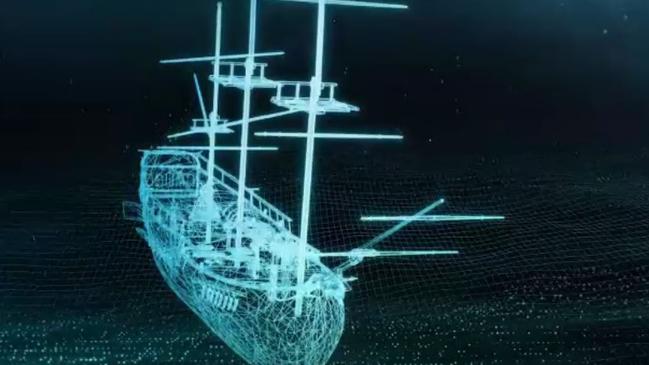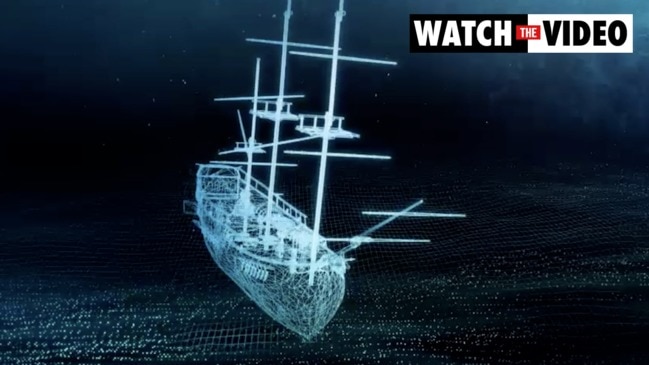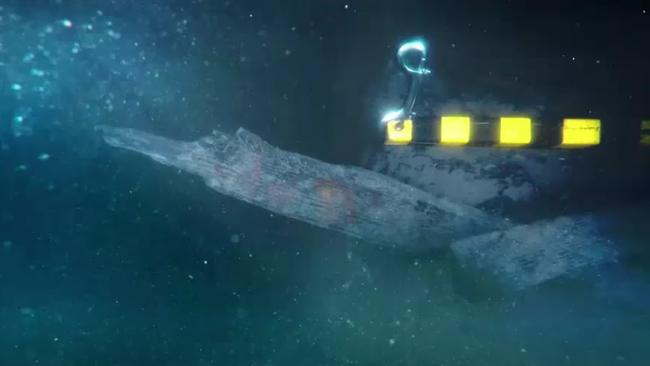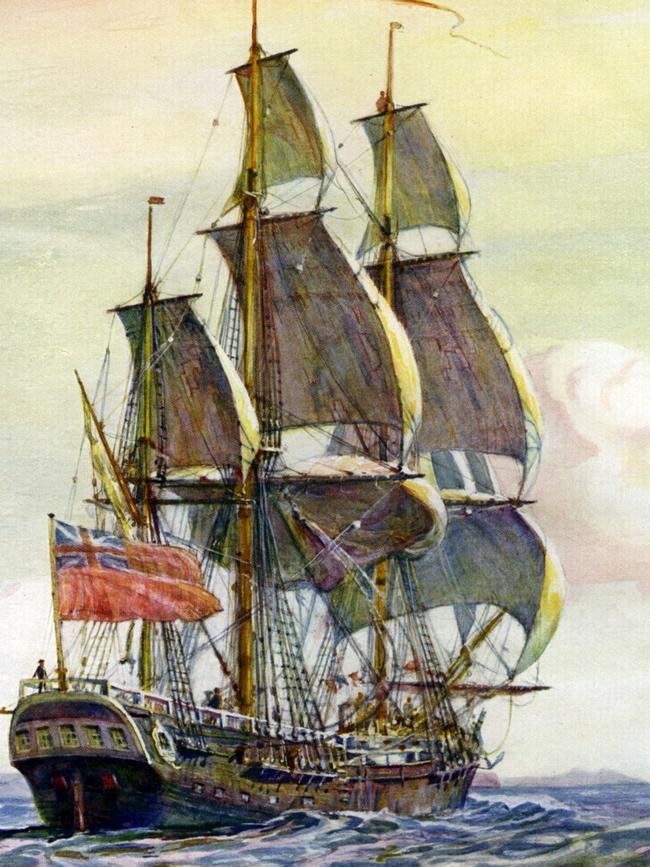Shipwreck confirmed as Captain Cook’s Endeavour, but US research partner dispute findings
A team of archaeologists say they identified the remains of James Cook’s HMS Endeavour in the US, but the project’s lead research partner quickly shot down the claim.

A team of marine archaeologists have identified the remains of James Cook’s ship HMS Endeavour off Rhode Island, despite US researchers contesting the discovery of the eighteenth-century ship.
Australian National Maritime Museum director Kevin Sumption declared on Thursday that the shipwreck of James Cook’s famous vessel HMS Endeavour had been conclusively identified following a 22-year long search, marking one of the biggest discoveries in Australia’s maritime history.

“I am satisfied that this is the final resting place of one of the most important and contentious vessels in Australia’s maritime history,” Mr Sumption said on Thursday alongside Arts Minister Paul Fletcher.
But the discovery has been contested by the project’s lead research partner, the Rhode Island Marine Archaeology Project, which says there is “no indisputable data to prove the site is that iconic vessel”.
“What we see on the shipwreck site under study is consistent of what might be the Endeavour but there has been no indisputable data to prove the site is that iconic vessel, and there are many unanswered questions that could overturn such an identification,” the organisation said in a statement.

The organisation also accused the ANMM’s announcement as a breach of contract, saying it disregarded how the research would be shared with the public and that confirmation of the discovery was made prematurely.
But Mr Sumption remains convinced the shipwreck can be conclusively identified as the Endeavour.
“This is the vessel that James Cook sailed to Tahiti in 1769 to observe the transit of Venus,” he told reporters, adding that the team was certain it had uncovered the last “piece of the puzzle”.

The remains of the converted collier were located in Newport Harbor off Rhode Island at a site known as RI 2394.
Since 1999, the team of marine archaeologists have been investigating several 18th century shipwrecks in the area where they believed that Endeavour sank.
The team suggests the ship was scuttled in the harbour by the British more than 240 years ago, adding that they were convinced they had successfully identified it after matching structural details with its original 18th century plans.
At a press conference announcing the discovery, Mr Sumption described the Endeavour as arguably one of the most important vessels in Australia’s maritime history.
“It’s an important historical moment, as this vessel’s role in exploration, astronomy and science applies not just to Australia, but also Aotearoa New Zealand, the United Kingdom and the United States,” said Mr Sumption.
“This vessel played a critical role not only in the history of the United Kingdom, but also New Zealand, of course Australia, and now the US.”

While only around 15 per cent of the vessel remains, he said the focus of the team will be protecting and preserving it.
“The museum continues to work closely with maritime experts in Rhode Island and of course with the Australian, Rhode Island and US governments to secure the site,” he said.
In 2019, researchers first announced they may have located the remains of the shipwreck, but required further analysis to conclusively confirm whether it was the Endeavour.



